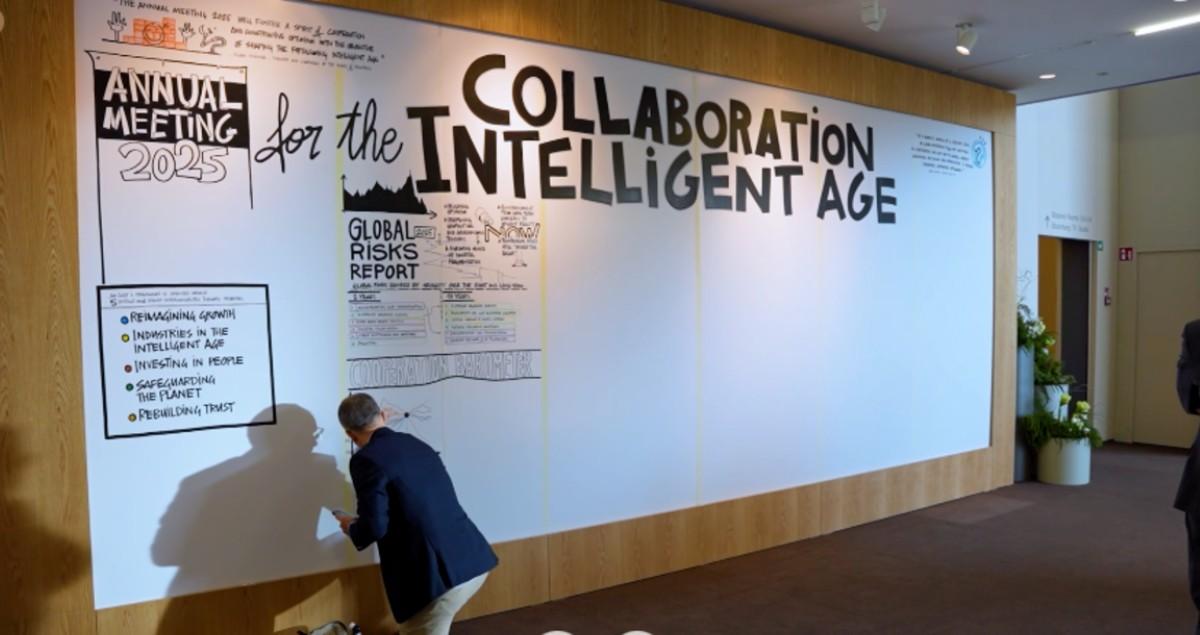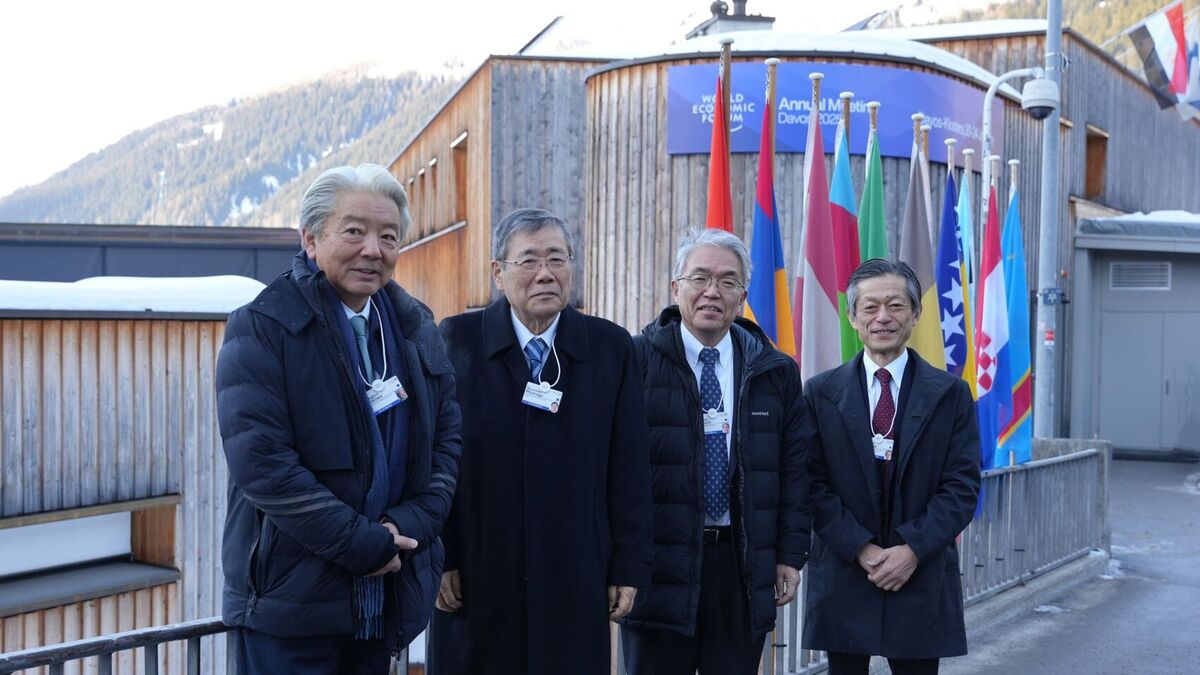MHI at Davos: Collective action on net zero is more critical than ever

Sustainability has been central to discussions on the future of the energy industry in recent years.
With conversations around fulfilling AI’s demand for power and what a new US administration might mean for the energy transition, did this year’s Davos show the dial is shifting?
Delegates from Mitsubishi Heavy Industries (MHI) at the World Economic Forum 2025 Annual Meeting attended multiple sessions and met colleagues from across industries and nations to discuss how the world can make progress on addressing global challenges.
Their big takeaways from the event?
Much of the dialogue on energy focused on how to meet surging demand. But — speaking to the meeting’s overall theme of Collaboration for an Intelligent Age — there was also an encouraging optimism among attendees and the belief that working together is the best way to advance.

Global challenges and AI dominate Davos discussion
Geopolitics and artificial intelligence loomed large across many of the discussions in the Swiss Alps. US President Donald Trump stated in a virtual address to the event that “we need double the energy we currently have in the United States for AI to be as big as we want to have it, because it’s very competitive”.
The new administration’s energy strategy — which includes an announcement that the US would be leaving the Paris Climate Agreement and bids to increase fossil fuel production to boost energy security — “has a lot of people questioning what’s next”, according to Takajiro Ishikawa, President & CEO of MHI America. He also noticed much excitement and hope for the future among attendees at the summit.
Fatih Birol, Executive Director of the International Energy Agency (IEA), spoke on various panels in Davos about whether energy security should be prioritized over the energy transition and was among those presenting a positive outlook. “We can do both,” he reassured delegates.
“With well-designed energy transition policies, we can have the best energy security... we can bring the prices down, we can bring prosperity to the people, and we can create jobs,” he said.
As global politics and the energy transition become increasingly intertwined, part of the solution is for the private sector to leverage the knowledge and experience it has accumulated on how to collaborate to accelerate solutions, MHI Chairman Shunichi Miyanaga said during an FT Expert Corner interview at the summit.
We need to continue our best efforts to show governments the performance and benefits of technologies such as green hydrogen, he added.
Collaboration can advance frontier solutions
Emerging technology was a recurring theme throughout Davos 2025, with many sessions covering examples of progress in areas including manufacturing and decarbonization.
Alongside AI’s increasing power demand, its potential to help companies reduce energy use was also discussed. For Hitoshi Kaguchi, MHI Senior Executive Vice President, President of GX Solutions, there is much potential for AI to be used, including at MHI, to improve manufacturing and design processes. And MHI is also working on partnerships to address data center electricity use, with gas turbine plants and CO2 capture in the near future, followed by conversion to hydrogen.
Through sharing knowledge and proprietary technology with a range of partners, in areas including hydrogen and nuclear power, private sector companies can help bring down costs as well, Miyanaga told the FT.
Working across industries and borders is vital
Collaboration was high on the agenda for European Commission President Ursula von der Leyen, who launched a new Global Energy Transition Forum in Davos. The initiative will unite countries, companies and investors from across the world around the objective of reaching global climate goals and supporting nations that find the energy transition more challenging.
And the theme of collaboration resonated deeply with MHI’s cohort at the Annual Meeting, according to Hiroshi Matsuda, SVP and Chief Regional Officer, EMEA. “How can we carry society into a prosperous future dominated by new technology while safeguarding the planet?” he asked. “In a time of growing divisions and uncertainty, it’s more important than ever to work together across borders to tackle the monumental tasks we face.”
Ishikawa emphasized that an important aspect of these partnerships, discussed at Davos 2025, is fostering cultures that tolerate failure. Meanwhile, in his interview with FT Expert Corner, Miyanaga concluded with a key thought: while innovation is essential, we must also be “patient and tough” in the journey to net zero.
Global events will continue to influence the path to decarbonization but the message from Davos is clear. By working together to advance key technologies, countries, industries and companies can ensure a secure, equitable and sustainable energy transition.
Discover more about MHI’s insights on what CCUS needs to succeed in helping us reach net zero.





